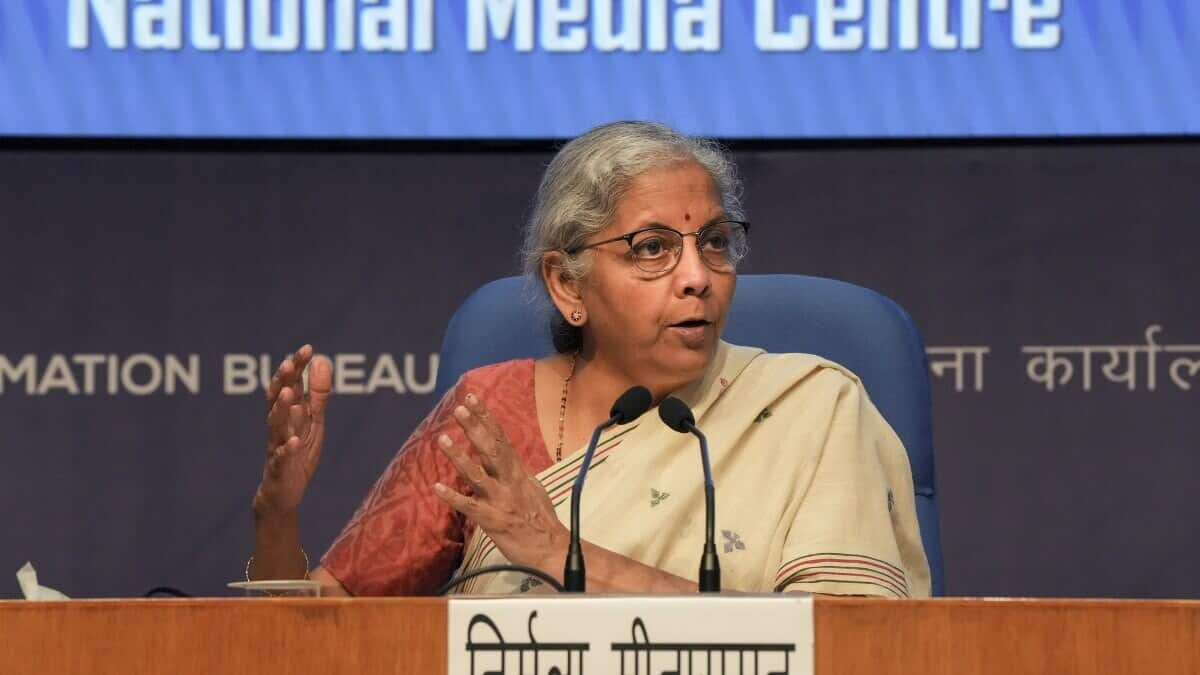
GST Council Meeting: What got cheaper and costlier
What's the story
The Goods and Services Tax (GST) Council, in its 53rd meeting held in New Delhi, has decided to implement nationwide biometric authentication to tackle fake invoicing. Union Finance Minister and GST Council chair, Nirmala Sitharaman, announced this decision, stating it would help combat fraudulent input tax credit claims made through fake invoices. The council also suggested retrospective amendments to input tax credit timelines under the CGST Act.
Sitharaman
What Sitharaman said on input tax credit
"The time limit to avail input tax credit in respect of any invoice or debit note under section 16(4) of the CGST Act filed up to the 30-11-2021 for the financial years 17-18, 18-19, 19-20 and 20-21 may be deemed to be 2011 to 2021," Sitharaman said. "So for the same requisite amendment retrospectively with effect from 1 July 2017, the council has made a recommendation," she added.
Railways exemption
Indian Railways services exempted from GST
Sitharaman also announced that services provided by Indian Railways, including platform tickets, waiting room facilities, and battery-operated car services, have been exempted from GST. In addition to this exemption, Aadhaar biometric authentication has been made mandatory for new GST registrations across the country. This would tighten the GST registration process and help combat fraudulent input tax credit (ITC) claims made through false invoices. Further intra-railway supplies were exempted.
GST standardization
Uniform GST rate for milk cans, carton boxes, and sprinklers
For other products, the GST Council has recommended a uniform GST rate of 12% on all milk cans and carton boxes, regardless of the material used for these items, be it steel, iron, or aluminum. This same rate will also apply to all types of sprinklers, including fire water sprinklers. The council's decision aims to standardize the tax rates across different materials and products.
Tax relief
Waiver on interest and penalties, exemption for hostel services
Moreover, the GST Council decided to waive interest and penalties on demand notices issued under section 73 for FY 17-18, 18-19, 19-20 if the tax is paid entirely by March 2025. Additionally, the council recommended that hostel accommodation services outside educational institutions be exempted up to ₹20,000 per person per month. However, the student must have stayed in the hostel for a minimum of 90 consecutive days. The restriction was implemented to prevent hotels from taking advantage of the exemption.
GST review
Fertilizer sector's GST rate under review
The council has also referred a recommendation on exempting the fertilizer sector from the current 5% GST to the Group of Ministers on rate rationalization. Currently, fertilizers are charged a 5% GST rate, while raw materials like sulfuric acid and ammonia face an 18% GST rate. The possibility of reducing the tax on fertilizers was discussed in previous meetings held in September 2021 and June 2022, but no changes were recommended at that time.